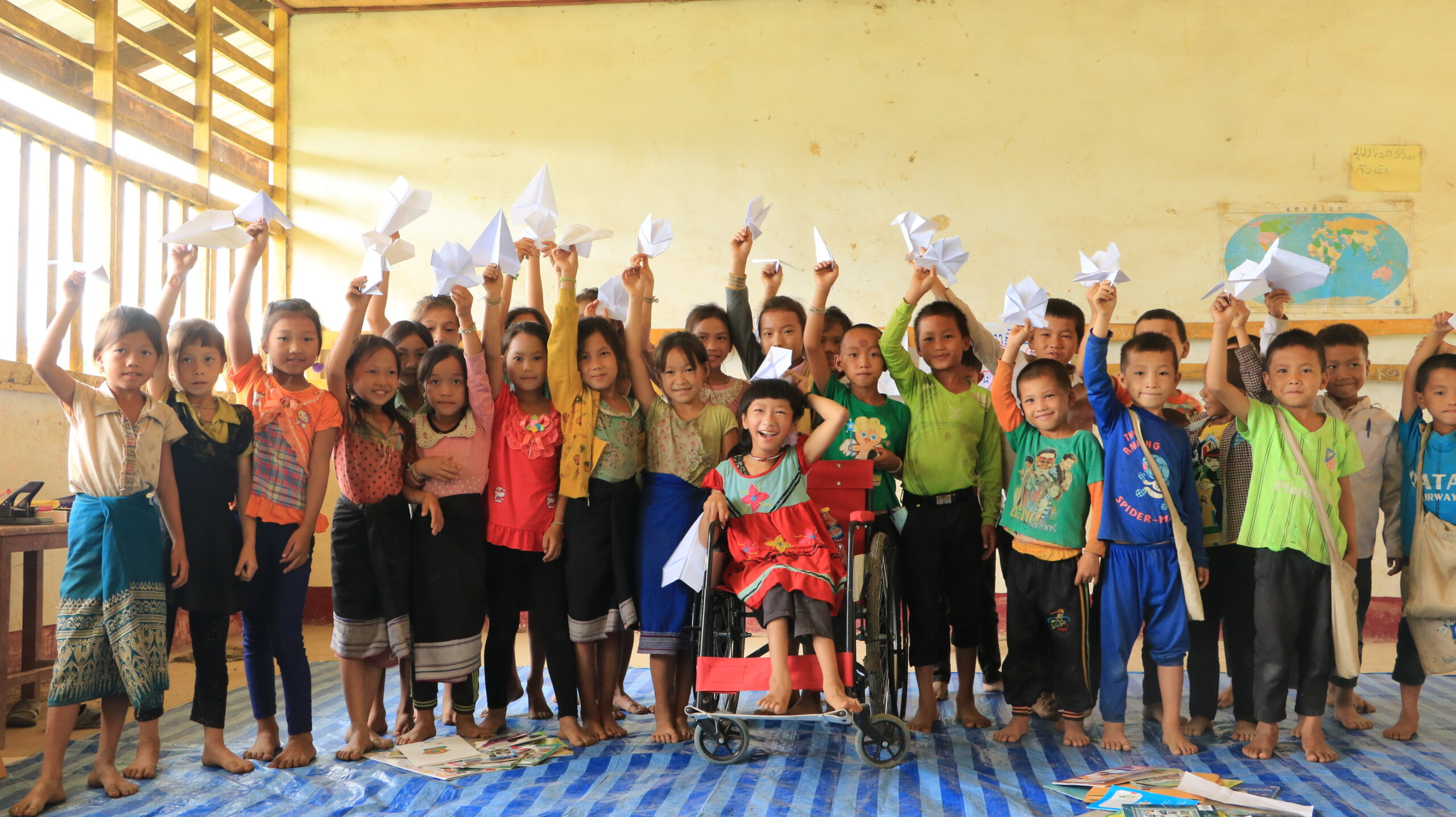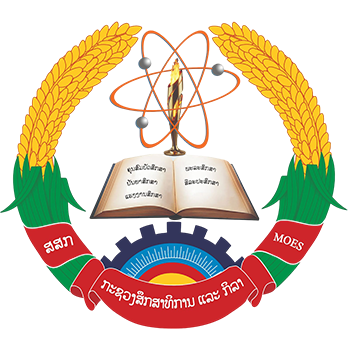
Every child has the right to education. However, children with disabilities form a significant proportion of the out-of-school population in developing countries. Very often, their abilities are overlooked, their capacities are underestimated and their needs are given low priority. Yet, the barriers they face are more frequently a result of the environment in which they live than a result of their impairment
The BEQUAL NGO Consortium (BNC) supports the right to education for all through its small grants program. In the villages where the BNC project is implemented, and in collaboration with the Provincial Education and Sport Service (PESS), the District Education and Sports Bureau (DESB) and the Village Education Development Committee (VEDC) identify out-of-school children and the reasons why they are not going to school. During this process, they found several children with impairment and collaborated with other organisations such as COPE to find a solution to enable these children to go to school.
Por Ju is an 11-year-old Hmong girl living with her parents in Kiewpha village in Houn District, Oudomxay Province. She has cerebral palsy and had never been enrolled in school because her parents were concerned she would not get the help she needed. With support from the BNC and VEDC, Por Ju spent 12 days in Luang Prabang Provincial Medical Rehabilitation Office where she was properly diagnosed and received appropriate treatment. Por Ju learned specific exercises to improve her physical movements.
Por Ju’s father, Morheu explained, “Since my daughter couldn’t walk like other girls, we didn’t know what to do and where to go for treatment. But after the BNC came to support our village, teachers in Kiewpha primary school suggested I take my daughter to the rehabilitation office. I am very proud and happy that one day my daughter might walk as her friends”.
The VEDC also encouraged Por Ju to join the BNC reading camp, which is a community library for children and where young secondary students conduct reading activities for younger children. Por Ju was so happy to interact with children of her own age-group and start socialising.
Plan International Laos staff in Houn District, Somphone added, “Por Ju was one of the most active and excited children who join my reading activity when I was a volunteer in her village. She tried to sit next to her brother and sometimes repeat words when her brother reads a book”.
Nak is a 14-year-old Khmu boy who lives in Mokprai village, Houn District, Oudomxay Province. He suffers from clubfoot and short-term memory disorder. He used to crawl to school until Grade 3 and then dropped out. Nak received the same treatment as Por Ju. When he was at the rehabilitation center, he proudly told BNC staff, “I am very happy that I can walk. Not perfectly, but now I can walk and not just crawling on the floor. One day, I will be back to school”. And his dream has come true! Nak is now attending Grade 3.
The BEQUAL NGO Consortium closely monitors the two children’s physical improvement, following up on any difficulty they may encounter with their rehabilitation therapy and providing special care-giver support to their parents and community. They are also encouraging them to join learning activities with other children in their village.
Through the BEQUAL program, the Lao Government, Australian Government and the European Union are working to ensure that more children will have access to school and be able to complete basic education in the future. Because every girl and every boy, every child with disability, has the right to a quality education so that they have more chances in life.



 ພາສາລາວ
ພາສາລາວ